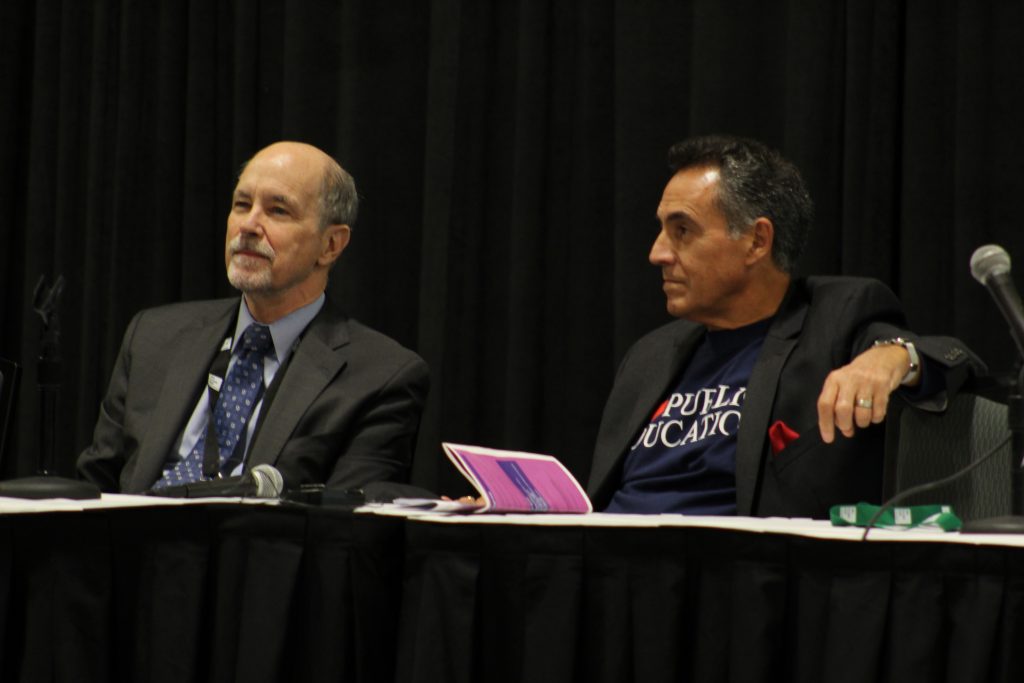The executive directors of the AASA and NSBA discussed how important equity is when it comes to several hot-button issues involving school shootings, advocacy work and student learning.
The two organizations’ leaders collaborate annually at a Thought Leader session at the AASA national conference.
Daniel Domenech, executive director of AASA, explained how school shootings have increased in frequency to once a week across the U.S. as of Wednesday. He expressed frustration that nothing is really being done to deal with this issue regarding mental health or any other resources that are necessary for stopping these tragic events.
Thomas Gentzel, executive director of NSBA, hopes this is one issue superintendents and board members will work together on — holding people accountable for meeting the needs of students with behavioral challenges and addressing mental health issues.
“I really believe it’s going to be up to us to hold people’s feet to the fire,” Gentzel said.
Both executive directors stated they feel frustrated when it comes to their student advocacy efforts because they see little being done on the federal government's end. They believe the main area of focus now and going forward must be centered on education equity.
“Title I and the ESEA, then No Child Left Behind and now ESSA were attempts for the federal government to try to equalize (student chances for success), but they don’t have enough money,” Domenech said. “The money that they do provide, as welcome as it is to the communities that need it, isn’t enough.”
Gentzel gave credit to the long-term federal budget deal that was just approved, which sets the stage for higher funding for domestic programs including education. But, he stated in the current climate where public schools are often the place of mass shootings and the public schools continue to receive a constant barrage of negative news, it’s going to be hard to get appropriations.
A conversation must take place between the superintendent and the school board that has to be a real and intentional action because there are a lot of forces at work whenever you are dealing with something so serious.
Gentzel discussed the work being done now is not just about equity driving advocacy work, but it’s also about trying to help set the stage for these discussions at the local level.
Superintendents and the board must compose a leadership team. “We have to be on the same page and we have to be making good decisions for kids,” Gentzel said.
Because of the way public schools are funded, the best predictor of the quality of a student’s education and school programs is based on where they live and the wealth of their community and culture plays a large factor in not being able to make the necessary changes for the betterment of all students.
“The biggest roadblock for superintendents, and boards to make those changes,” emphasized Domenech, “is a significant departure in culture.”
(Steve Barnum, a senior at Middle Tennessee State University, is an intern with Conference Daily Online.)


